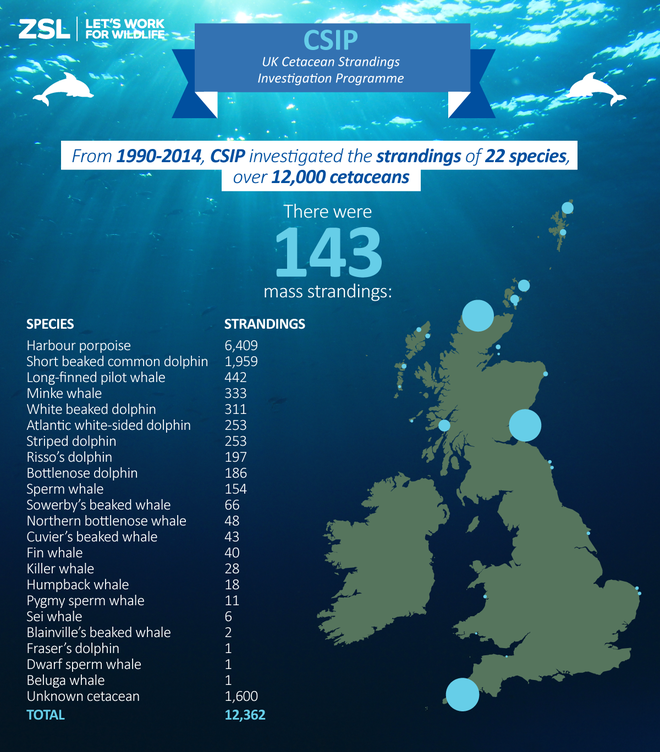Cetacean strandings
UK Cetacean Strandings Investigation Programme (CSIP)
For centuries, cetaceans (whales, dolphins and porpoises) have regularly stranded around the UK. The Cetacean Strandings Investigation Programme (CSIP) coordinates the investigation of all cetaceans, marine turtles and basking sharks that strand around the UK coastline.
Since the inception of the CSIP in 1990, data on over 12,000 stranded cetaceans have been recorded in the UK and nearly 3,500 necropsies have been carried out, producing one of the world’s largest research datasets on strandings and causes of mortality.
Summary of the research
The underlying causes of stranding events are not always clear and in particular, the role that human activity may play in either directly or indirectly causing strandings has often been called into question.
Post-mortem examination of stranded animals carried out by the CSIP provides unique insights into:
Causes of death
Diseases
Environmental contaminant levels
Reproductive patterns
Diet
Other aspects of the general health of cetacean populations in UK waters.
This data would be largely inaccessible through other methods and provides an important baseline to help detect future outbreaks of disease, unusual mortality events or responses to environmental change, such as climate change.
The CSIP developed and manages an online database, bringing together information on both strandings and post-mortem data, which is accessible to the wider scientific and conservation community, accessible via the NBN gateway.
The team also maintains a national cetacean tissue archive, with over 80,000 samples held at ZSL alone, providing an internationally important resource for collaborative scientific research.
Partners include:
Scottish Rural University College (Inverness)
Natural History Museum
Marine Environmental Monitoring
Cornwall Wildlife Trust Marine Strandings Network
Centre for Environment, Fisheries and Aquaculture Science
